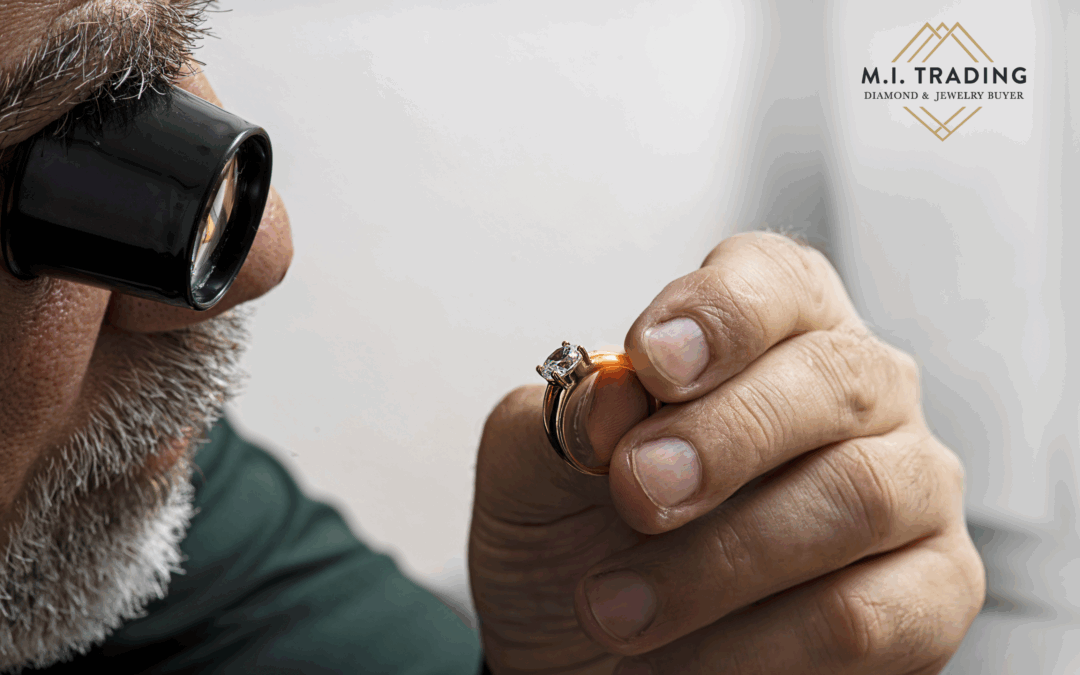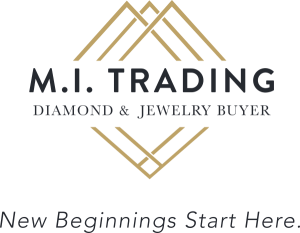Unlocking the true value of your cherished jewelry begins with a certified jewelry appraisal. This process not only provides a precise valuation but also offers peace of mind, ensuring your treasures are adequately protected and accurately insured.
The Importance of Certified Jewelry Evaluation for Your Precious Gems
Understanding the true value of your jewelry is not only important for personal knowledge but also essential for practical reasons such as insurance, resale, and estate planning. A professional certified jewelry evaluation ensures that your pieces are valued accurately and that the value assigned reflects the most recent fair market value. Here are some key reasons why an evaluation from a reputable and unbiased appraiser is essential:
1. Insurance Coverage
Jewelry is often a significant financial asset, which means it needs to be protected. Insurance companies require detailed documentation of the jewelry’s value before they can issue a policy. An appraisal from a reputable gemologist appraiser ensures that the value assigned to the piece is based on the most recent market values. This protects you in the event of loss, theft, or damage, as the insurer will use the documented value to compensate you. An evaluation must provide a detailed report describing the gemstones, metal, weight, and overall quality of the piece to ensure that the insurance company understands the true worth of the item.
2. Resale Value
If you plan to sell or trade your jewelry, knowing its true worth is critical. A certified evaluation helps you understand the fair market value of your pieces, which is the price you can reasonably expect to receive based on current market trends. Without an appraisal, you risk underselling your jewelry or misunderstanding its potential value. A reputable appraiser must analyze the piece’s unique characteristics and assign value accordingly, taking into account fluctuations in the jewelry market. The appraisal helps you set a competitive and realistic price, whether you’re selling to a dealer, through an auction, or privately.
3. Estate Planning
Passing down valuable jewelry to family members can be complicated without a clear understanding of its worth. A certified jewelry evaluation facilitates fair and equitable distribution of assets among heirs. An appraiser must carefully examine each piece, considering both the intrinsic value of the materials and the broader market values. The value assigned to each piece allows for a balanced division of assets and helps prevent disputes among heirs. A reputable and unbiased appraiser ensures that the valuation process is transparent and fair, which is crucial for avoiding family conflict.
How a Gemologist Appraiser Assigns Value
A gemologist appraiser follows a detailed process to determine the value of a piece of jewelry. The appraisal starts with a physical examination, during which the appraiser must inspect the piece’s materials, design, and craftsmanship. They consider factors such as gemstone cut, clarity, carat weight, and color, as well as the type and purity of the metal used.
After the physical assessment, the appraiser researches market values and compares the piece to similar items currently being sold in the market. They consider trends in gemstone and precious metal prices, ensuring the value assigned reflects the most up-to-date information. An experienced appraiser must remain unbiased throughout this process, focusing solely on objective criteria rather than sentimental value.
The final step involves compiling the findings into a detailed report that includes photographs, descriptions, and the assigned value. This documentation serves as an official record, which is essential for insurance, resale, and legal purposes. The fair market value indicated in the appraisal reflects the price that a willing buyer and seller would agree upon under normal market conditions.
Why Choosing a Reputable and Unbiased Appraiser Matters
Not all appraisers are equal. It’s important to seek out a reputable gemologist appraiser who is certified by recognized industry organizations, such as the Gemological Institute of America (GIA) or the American Gem Society (AGS). A reputable appraiser must have the expertise to assign value accurately and fairly, without bias or conflict of interest. They should provide a clear and detailed explanation of how they reached the value assigned to each piece.
An unbiased appraiser ensures that you receive an honest evaluation, free from any pressure to overstate or understate the value. This is especially important when securing insurance or preparing to sell a piece, as an inaccurate valuation could result in financial loss or complications with the insurance company.
The Long-Term Value of a Certified Jewelry Evaluation
A certified jewelry evaluation provides lasting value beyond the initial assessment. As market values fluctuate over time, it’s wise to have your jewelry appraised every three to five years to ensure that the value assigned reflects current trends. Keeping your evaluation up to date ensures that your insurance coverage remains accurate and that you are well-informed about the worth of your assets.
Certified jewelry evaluations offer more than just financial benefits — they provide confidence and clarity in knowing that your precious pieces are valued accurately and protected properly. By working with a reputable and unbiased evaluation, you ensure that the value assigned to your jewelry reflects both its tangible and emotional significance.
How Certified Appraisals Protect Your Investment
A certified jewelry appraisal plays a vital role in safeguarding the value of your jewelry and protecting your financial interests. A professional appraisal from an accredited gemologist with the proper diploma and credential ensures that the appraisal is accurate and accepted by insurance companies, buyers, and jewelers. A detailed appraisal serves as an official document that verifies the characteristics and appraised value of your jewelry, including the specifics of gemstones, precious gems, and metals like platinum.
An accredited gemologist conducts a comprehensive evaluation, examining the quality of the gemstones and the precious gems, the metal type and purity, and the overall craftsmanship of the piece. This process results in a detailed valuation report that includes the item’s current market value and its retail replacement value. The valuation also serves as an estimation of what a buyer might expect to pay in the current jewelry market.
Certified appraisals are essential when you decide to buy or sell jewelry. When selling, the appraised value gives you a clear understanding of what to expect based on the current market. For buyers, an appraisal ensures that the item is accurately valued and that the value of your jewelry reflects its true worth. Additionally, having an appraisal simplifies the process of filing an insurance claim in case of loss, theft, or damage, since the insurance company relies on the documented retail replacement value to determine compensation.
By working with a qualified and experienced accredited gemologist, you can trust that the value assigned to your jewelry is fair, accurate, and reflective of the most recent market conditions. This professional documentation gives you confidence when making decisions to buy or sell jewelry and ensures that your investment is properly protected.
Understanding the Appraisal Process: What to Expect
A professional jewelry appraiser follows a structured process to determine the precise value of your jewelry for various purposes, such as insurance purposes, resale, or securing collateral for a loan. A certified appraiser, especially one from the National Association of Jewelry Appraisers, ensures that the final valuation reflects the most accurate current market conditions. The type of appraisal can vary depending on its intended use — for example, an insurance of appraisals will focus on establishing a replacement value, while a resale appraisal will determine the expected selling price.
1. Initial Consultation
The appraisal process starts with a consultation to discuss the purpose of the appraisal. Different types of appraisals include those for insurance purposes, resale, estate planning, and loan collateral. The appraiser tailors the approach based on the goal, which helps ensure an accurate and meaningful outcome.
2. Detailed Inspection
An experienced appraiser, trained in gemology, conducts a thorough examination of the jewelry’s physical attributes. This includes assessing the quality of the diamonds and other precious gems, the metal type (such as gold or platinum), and the overall craftsmanship. The appraiser considers key factors like gemstone cut, clarity, carat weight, and setting to assign value that reflects the piece’s true worth.
3. Market Analysis
The appraiser conducts a detailed market analysis, researching comparable pieces and evaluating current market trends. The final value assigned reflects the most recent market values and helps determine the selling price or retail replacement value. Market demand, material prices, and rarity are all also considered when establishing the appraised value.
4. Documentation
Finally, the appraiser prepares a detailed report outlining the findings, including a description of the jewelry, gemstone specifics, and the appraised value. This documentation serves as an official record for insurance purposes, resale, or estate planning. Proper documentation helps ensure that the value is recognized by insurers and buyers alike.
Working with a member of the National Association of Jewelry Appraisers guarantees that the appraisal is accurate, unbiased, and reflective of the true value of your jewelry in the current market.
Common Misconceptions About Jewelry Appraisals Debunked
There are several myths and misunderstandings surrounding the process of jewelry appraisals:
Myth: Appraisals are only necessary for expensive pieces.
Fact: All valuable jewelry, regardless of its price, should be appraised to establish an accurate value for insurance purposes and resale. Even items that may seem less than retail can still hold significant sentimental and financial worth.
Myth: Appraisals and certifications are the same.
Fact: Certifications provide details about gemstone quality, including cut, clarity, carat weight, and color, based on recognized grading standards. In contrast, an appraisal assigns a monetary value based on current market trends and the cost to replace the item. Both are important, but an appraisal is necessary for determining the true financial worth of your jewelry.
Choosing the Right Appraiser: Key Qualities to Look For
Selecting the right person to appraise your jewelry is crucial to ensuring a fair and professional evaluation. Consider the following when choosing an appraiser:
- Credentials: Make sure the appraiser is certified and qualified by a reputable organization, such as the Gemological Institute of America (GIA) or the American Gem Society (AGS). Certification ensures that the appraiser adheres to professional standards within the industry.
- Experience: A seasoned appraiser with a background in grading and evaluating jewelry is more likely to deliver accurate appraisals. Their familiarity with different styles, materials, and market trends enhances the reliability of the value based on their assessment.
- Reputation: Seek recommendations from jewelers and previous clients. An appraiser’s standing within the industry and positive feedback from other professionals are strong indicators of their credibility and professionalism.
A certified jewelry appraisal is essential for protecting the true value of your precious pieces. Whether you need documentation for insurance purposes, determining a cost to replace an item, or establishing a value based on current market trends, working with a certified and qualified appraiser ensures that you receive an accurate appraisal. A professional appraiser with expertise in gemstone quality and grading can provide a thorough evaluation that reflects the most up-to-date market conditions.
Appraising your jewelry not only protects your financial investment but also ensures peace of mind. Knowing the value based on a detailed and professional assessment allows you to make informed decisions when selling, insuring, or passing down your jewelry. By working with a reputable appraiser who adheres to industry standards, you safeguard your treasures and ensure they retain their value for generations to come.



Recent Comments